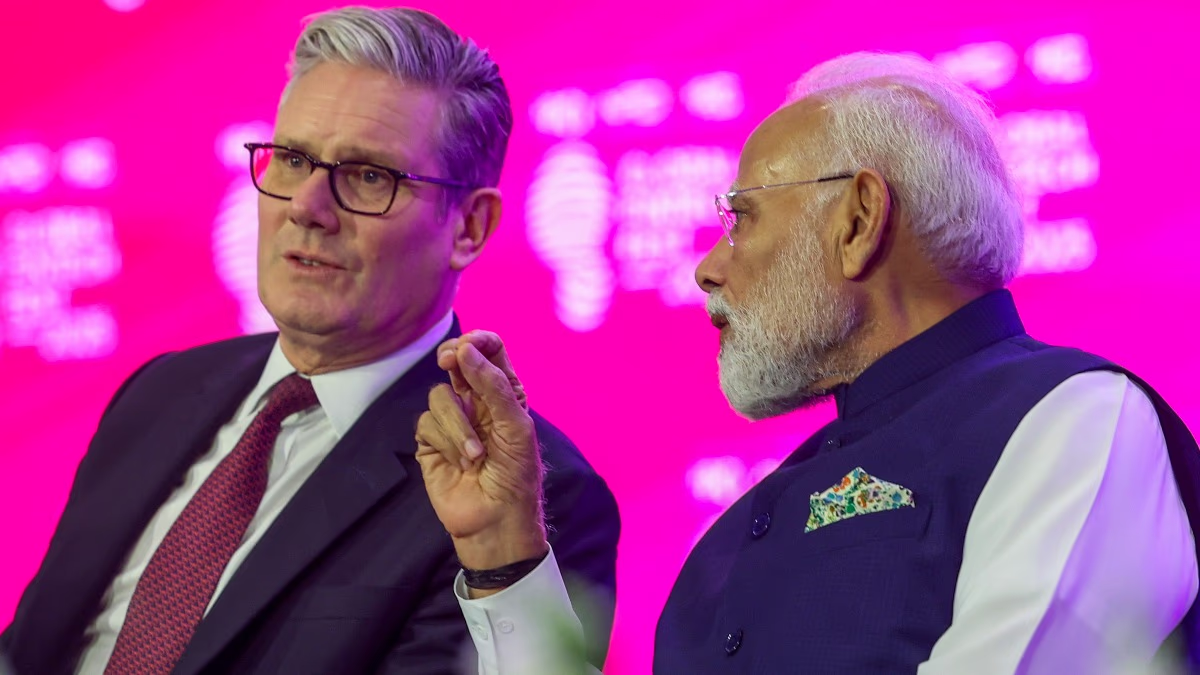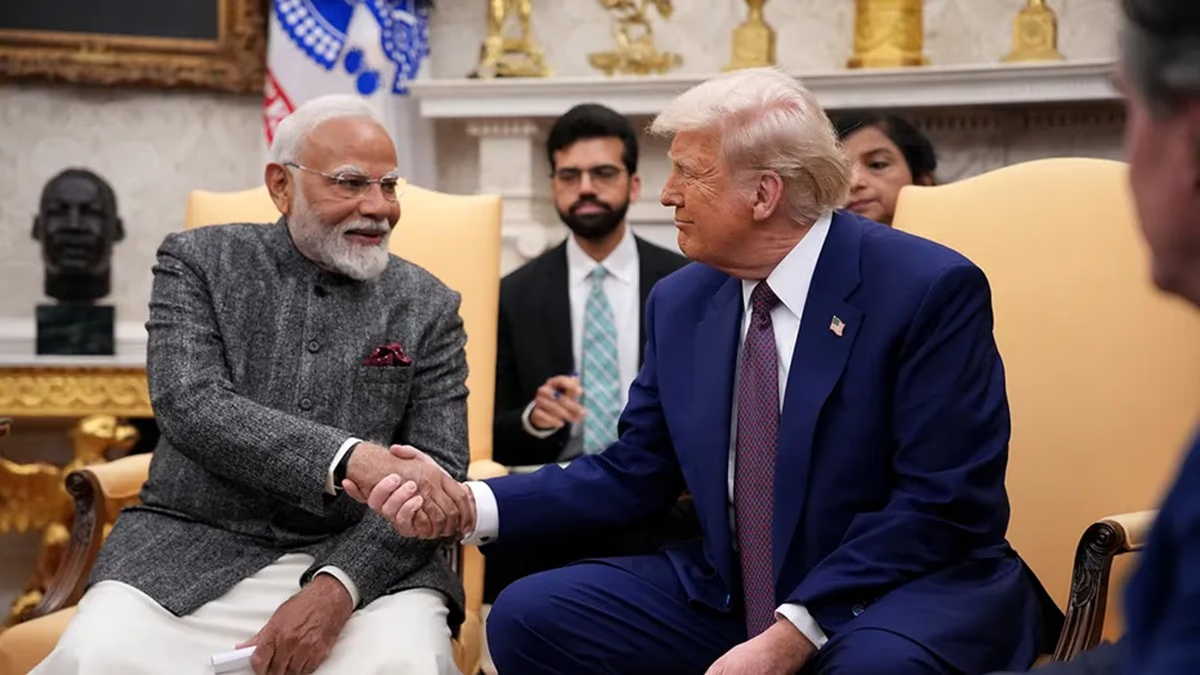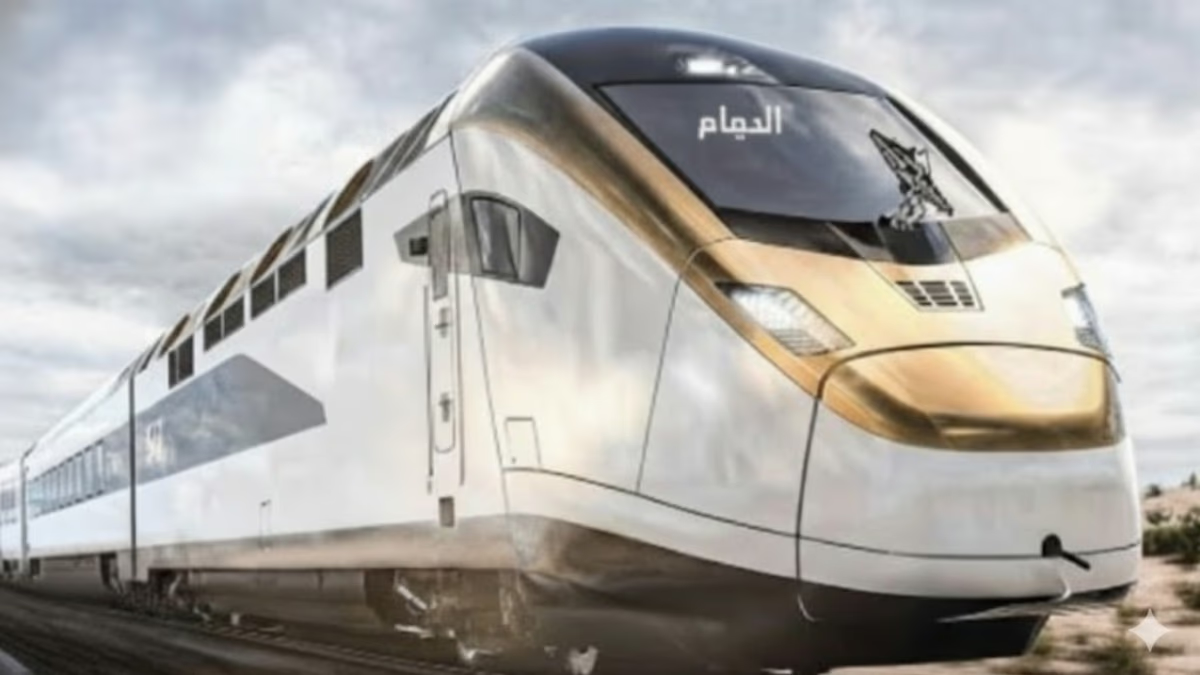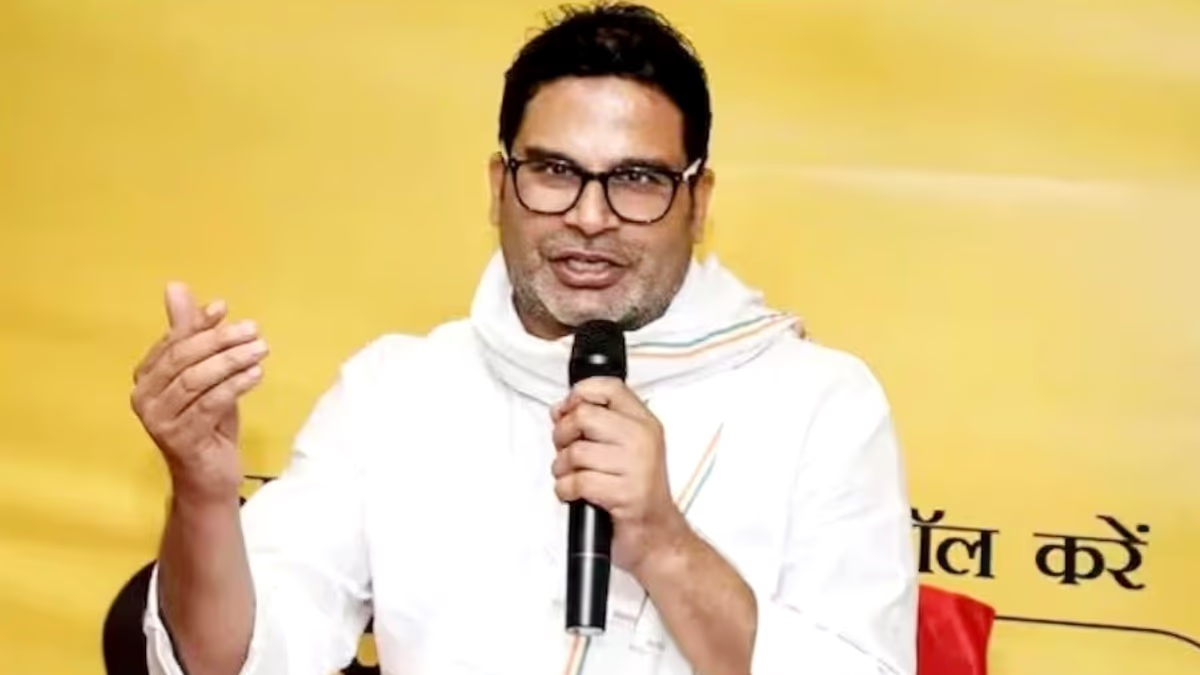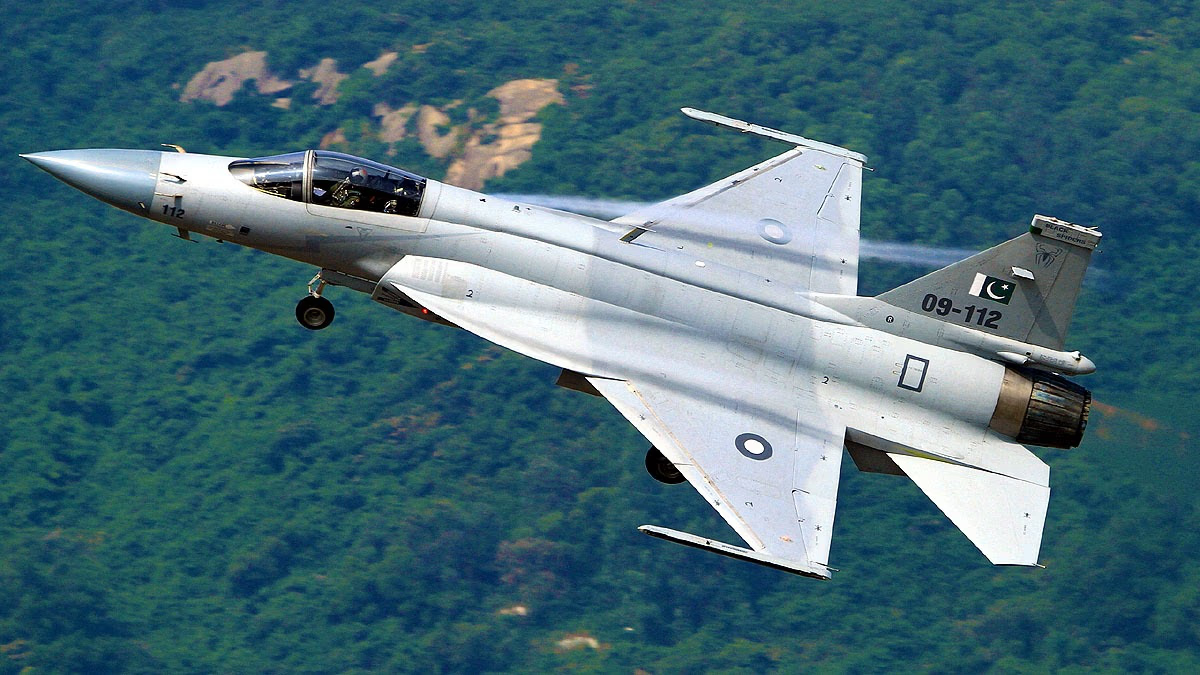There was an era when India was under British rule, with Britain extracting resources and shipping them in large vessels along with Indian laborers used as cheap workforce in British factories. Fast forward to today, a transformed Britain welcomes investment from India, celebrating the rise in jobs and economic opportunities born from Indian investments.
What Do the Figures Suggest?
Sixty-four Indian companies have pledged to invest 1 billion pounds (11,877 crore rupees) in the UK, creating approximately 7,000 jobs.
This is a historic moment for India. Once underestimated, India is now injecting investments into an economy that once underestimated its potential, tool in hand to carve out new employment opportunities in Britain.
A Delegation of 126 Accompanies the UK PM
Accompanying UK Prime Minister Keir Starmer is a massive delegation of 126 individuals, known as the Jumbo Delegation. In discussions with this team, Indian Prime Minister Narendra Modi emphasizes how the trip, pegged as the largest trade mission by the UK this year, has immense trade and growth potential. Even former US President Donald Trump, skeptical about India’s economy, will find this significant achievement noteworthy.
Britain Looks to India for Support
Amidst skepticism from figures like Donald Trump who doubted India's economic clout, current scenarios showcase a different reality. While many may find it hard to accept, Britain sees promise in India’s accelerating economic engine.
On one hand, India stands as the world’s fastest-growing economy with a GDP growth rate of 7.8% for April-June, unmatched by Western countries. Britain’s economy, by contrast, struggles at a 0.3% GDP growth rate.
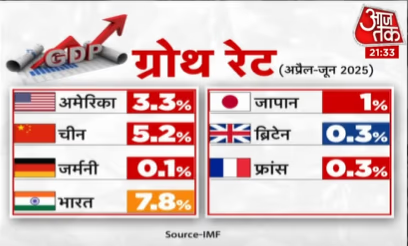
Source: aajtak
India Standing Tall Among Western Nations
India surpassed the UK's economy in September 2022, now sitting as the fourth-largest economy globally while the UK holds the sixth spot.
Goldman Sachs and Visual Capitalist forecast India surpassing the US to become the second-largest world economy by 2075, while the US falls to third and Britain to tenth— yet they've called us a “dead economy.” India's economic and political stability stands favorably against the West.
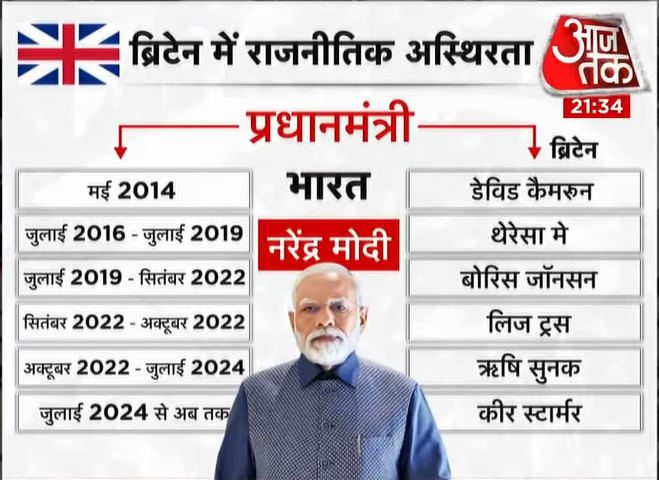
Source: aajtak
Since 2014, India has witnessed stable governance under Narendra Modi, a stark difference from the rapid leadership changes in Britain, which has seen six prime ministers in the same timeframe.
At the fintech festival in Mumbai, Prime Ministers Modi and Starmer arrived together in a carpool, symbolizing their joint vision. Some photos shared by Modi capture this unifying moment.
Why Keir Starmer Brought a Large Delegation to India?
The primary reason lies in Britain’s struggling economy with an anticipated budget session ahead. Before presenting the budget, Prime Minister Starmer reassures his nation by showcasing strategic alliances and investment decisions with India, a major market.
His aim: to build trust with Britain's populace by aligning with India, highlighting the nation of India’s new brand value. Recent announcements include Britain’s support for India’s permanent membership in the UN Security Council. Additionally, nine British universities will establish campuses in India, illustrating these partnerships’ mutual benefits and recognizing India as a land of investment opportunities.
Among the delegation, 14 vice-chancellors from reputed British universities accompany Prime Minister Starmer to India. Their forecast indicates that by 2035, seven crore Indian students will enroll in universities, pushing these institutions to establish campuses here.
Multiple India-UK Deals Sealed
India and the UK have inked several new deals, including Britain supplying lightweight multirole missiles, Martlets, to India. Weighing a mere 13 kilograms, these missiles boast a range exceeding 6 kilometers and a speed 1.5 times the speed of sound. With a cost of 4,128.7 crore rupees, coupled with benefits from a free trade agreement, both nations set to gain substantially.
This presents merely the beginning. Other Western nations, too, will turn their gaze towards India. Meanwhile, our free trade agreement with the European Union nears its final stages, with anticipated closure by December.
